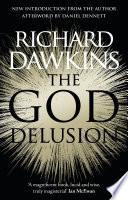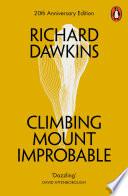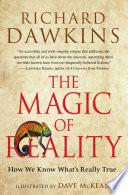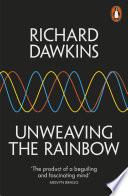“Mutation is random; natural selection is the very opposite of random.”
Source: The Blind Watchmaker (1986), Chapter 2 “Good Design” (p. 41)
Uncover Richard Dawkins' profound quotes on natural selection, faith, alternative medicine, atheism, and the essence of life. Engage with his extraordinary ideas about our world.
Richard Dawkins is a British evolutionary biologist and author. He is known for popularizing the gene-centered view of evolution through his book The Selfish Gene and coining the term "meme." Dawkins has also been a vocal critic of creationism, intelligent design, and religion, expressing his atheistic views in books like The Blind Watchmaker and The God Delusion. He founded the Richard Dawkins Foundation for Reason and Science in 2006 and has received numerous academic and writing awards. Dawkins was born on March 26, 1941 in Nairobi, Kenya to parents who were interested in natural sciences. He grew up with a belief in Christianity but eventually became an atheist after realizing that Darwinism provided a better explanation for the complexity of life.
Dawkins studied zoology at Balliol College, Oxford under Nobel Prize-winning ethologist Nikolaas Tinbergen. He received his Doctor of Philosophy degree in 1966 and continued his research as a research assistant until 1967. Dawkins then served as an assistant professor of zoology at the University of California before returning to Oxford as a lecturer in 1970. He held various academic positions at Oxford, including Simonyi Professor for the Public Understanding of Science from 1995 to 2008. Dawkins has delivered numerous lectures and has edited several journals. He is affiliated with New College, Oxford as an emeritus fellow and joined the professoriate of the New College of the Humanities in 2011.
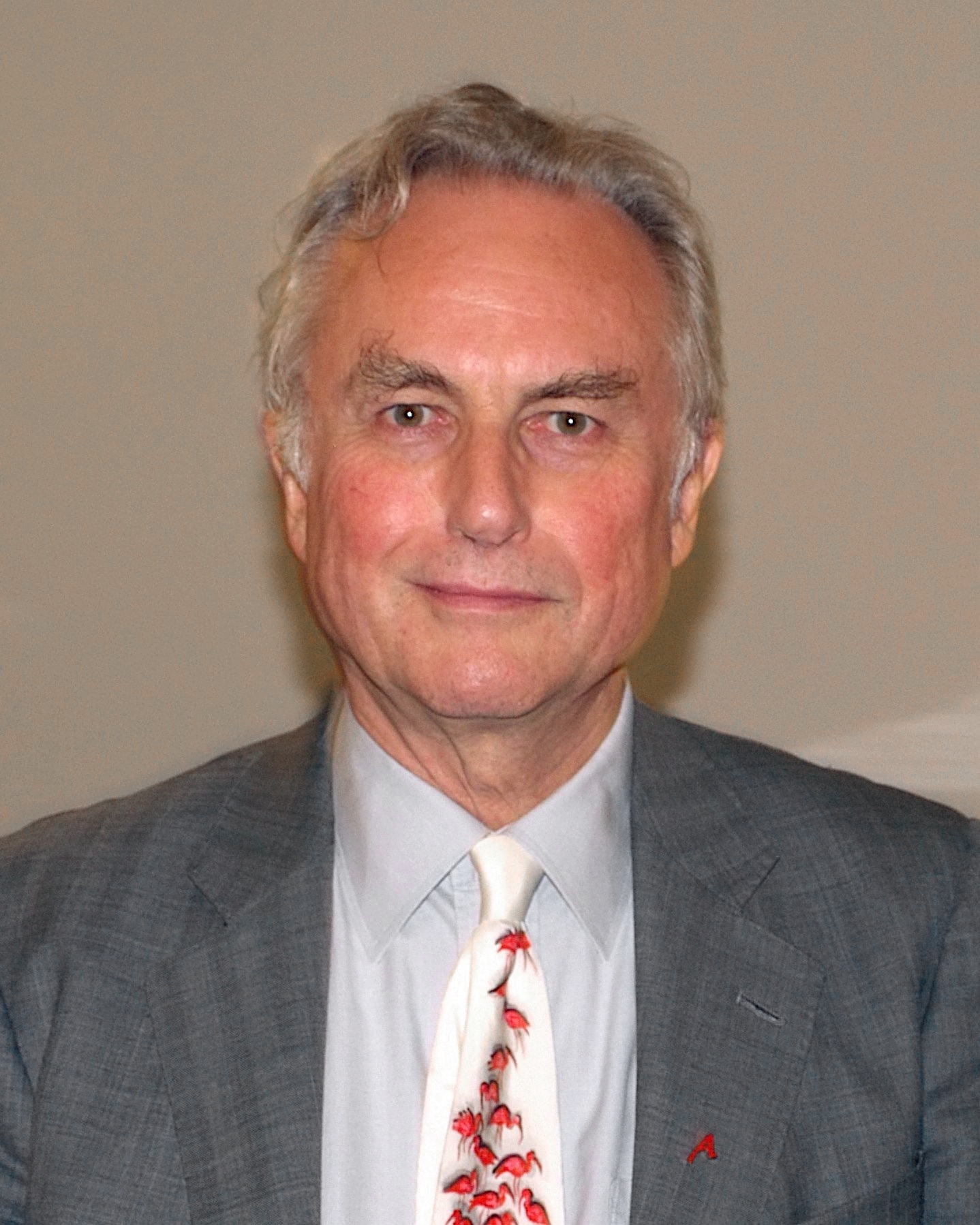
“Mutation is random; natural selection is the very opposite of random.”
Source: The Blind Watchmaker (1986), Chapter 2 “Good Design” (p. 41)
“So-called alternative medicine either hasn’t been tested or it has failed its tests.”
The Enemies of Reason (August 2007)
Context: If any remedy is tested under controlled scientific conditions and proved to be effective, it will cease to be alternative and will simply become medicine. So-called alternative medicine either hasn’t been tested or it has failed its tests.
“The genes are the master programmers, and they are programming for their lives.”
Source: The Selfish Gene (1976, 1989), Ch. 4. The Gene machine
Richard Dawkins debates Rowan Williams (2013) http://www.youtube.com/watch?v=HVxciEFyBT0&t=32m42s
Source: The Greatest Show on Earth: The Evidence for Evolution
Heart Of The Matter: God Under The Microscope | BBC (1996)
Variant: [... ] one of the truly bad effects of religion is that it teaches us that it is a virtue to be satisfied with not understanding.
Source: The God Delusion
When asked how the world had changed following the September 11, 2001 attacks
Has the world changed? http://books.guardian.co.uk/writersreflections/story/0,1367,567546,00.html, The Guardian (October 11, 2001)
Source: The God Delusion (2006), p. 275 of the Black Swan paperback edition of 2007
The Root of All Evil? (January 2006)
Source: Part 1: "The God Delusion"
“I'm sure Obama is an atheist, I’m sure Kennedy was an atheist, but I doubt if Pope Frank is.”
Interview with Bill Maher (2013) http://www.liveleak.com/view?i=d2b_1382908273
Source: The Selfish Gene (1976, 1989), Ch. 1. Why Are People?
Context: Let us try to teach generosity and altruism, because we are born selfish. Let us understand what our own selfish genes are up to, because we may then at least have a chance to upset their designs, something that no other species has ever aspired to do.
Source: The Selfish Gene (1976, 1989), Ch. 4. The Gene machine
Context: Survival machines that can simulate the future are one jump ahead of survival machines that who can only learn of the basis of trial and error. The trouble with overt trial is that it takes time and energy. The trouble with overt error is that it is often fatal.... The evolution of the capacity to simulate seems to have culminated in subjective consciousness. Why this should have happened is, to me, the most profound mystery facing modern biology.
that is such a staggering, elegant, beautiful thing, why would you want to clutter it up with something so messy as a God?”
During his conversation with the Archbishop of Canterbury, Dr. Rowan Williams, as quoted in The Telegraph, in . In " Richard Dawkins: I can't be sure God does not exist http://www.telegraph.co.uk/news/religion/9102740/Richard-Dawkins-I-cant-be-sure-God-does-not-exist.html"
The Root of All Evil? (January 2006)
“There's real poetry in the real world. Science is the poetry of reality”
The Enemies of Reason, "Slaves to Superstition" [1.01], 13 August 2007, timecode 00:38:16ff
The Enemies of Reason (August 2007)
Variant: Science is the poetry of reality.
Context: The word 'mundane' has come to mean boring and dull, and it really shouldn't. It should mean the opposite because it comes from the latin 'mundus', meaning the world, and the world is anything but dull; the world is wonderful. There's real poetry in the real world. Science is the poetry of reality.
The Richard Dimbleby Lecture: Science, Delusion and the Appetite for Wonder (1996)
An Interview by Sheena McDonald (1995)
Preface to the first edition
Source: The Selfish Gene (1976, 1989)
https://twitter.com/RichardDawkins/status/276449081746915328 (5 December 2012)
Twitter
Source: The Selfish Gene
Source: The God Delusion (2006)
Context: The God of the Old Testament is arguably the most unpleasant character in all fiction: jealous and proud of it; a petty, unjust, unforgiving control-freak; a vindictive, bloodthirsty ethnic cleanser; a misogynistic, homophobic, racist, infanticidal, genocidal, filicidal, pestilential, megalomaniacal, sadomasochistic, capriciously malevolent bully. (p. 31 of the hardcover edition and p. 51 of the paperback edition; see also: Dan Barker, God: The Most Unpleasant Character in All Fiction, foreword by Richard Dawkins, 2016)
Source: The God Delusion
(p. 8)
The Greatest Show on Earth: The Evidence for Evolution (2009)
Context: Evolution is a fact. Beyond reasonable doubt, beyond serious doubt, beyond sane, informed, intelligent doubt, beyond doubt evolution is a fact. The evidence for evolution is at least as strong as the evidence for the Holocaust, even allowing for eye witnesses to the Holocaust. It is the plain truth that we are cousins of chimpanzees, somewhat more distant cousins of monkeys, more distant cousins still of aardvarks and manatees, yet more distant cousins of bananas and turnips... continue the list as long as desired.
Source: River out of Eden (1995), pp. 131–132
Context: The total amount of suffering per year in the natural world is beyond all decent contemplation. During the minute it takes me to compose this sentence, thousands of animals are being eaten alive; others are running for their lives, whimpering with fear; others are being slowly devoured from within by rasping parasites; thousands of all kinds are dying of starvation, thirst and disease. [... ] In a universe of blind physical forces and genetic replication, some people are going to get hurt, other people are going to get lucky, and you won't find any rhyme or reason in it, nor any justice. The universe we observe has precisely the properties we should expect if there is, at bottom, no design, no purpose, no evil and no good, nothing but blind, pitiless indifference. DNA neither knows nor cares. DNA just is. And we dance to its music.
Dawkins has stated on many occasions that this passage will be read at his funeral.
Unweaving the Rainbow (1998)
Context: We are going to die, and that makes us the lucky ones. Most people are never going to die because they are never going to be born. The potential people who could have been here in my place but who will in fact never see the light of day outnumber the sand grains of Sahara. Certainly those unborn ghosts include greater poets than Keats, scientists greater than Newton. We know this because the set of possible people allowed by our DNA so massively outnumbers the set of actual people. In the teeth of these stupefying odds it is you and I, in our ordinariness, that are here. We privileged few, who won the lottery of birth against all odds, how dare we whine at our inevitable return to that prior state from which the vast majority have never stirred?
Source: The Selfish Gene (1976, 1989), Ch. 3. Immortal Coils
Context: Genes do indirectly control the manufacture of bodies, and the influence is strictly one way: acquired characteristics are not inherited. No matter how much knowledge and wisdom you acquire during your life, not one jot will be passed on to your children by genetic means. Each new generation starts from scratch.
Intelligent, creative, complex, statistically improbable things come late into the universe, as the product of evolution or some other process of gradual escalation from simple beginnings. They come late into the universe and therefore cannot be responsible for designing it.
The Huffington Post, 23/10/2006 http://www.huffingtonpost.com/richard-dawkins/why-there-almost-certainl_b_32164.html
Why There Almost Certainly Is No God (2006)
“The universe does not owe you a sense of hope.”
The Big Questions (2008)
Context: "The universe does not owe you a sense of hope. It could be that the world, the universe, is a totally hopeless place. I don't as a matter of fact think it is, but even if it were - that would not be a good reason for believing in God. You cannot say "I believe in X", whatever X is - God or anything else - "because that gives me hope". You have to say "I believe in X because there is some evidence for X". In the case of God - there is not a tiny shred of evidence for the existence of any kind of god.” … “There's plenty of reason for hope in a Godless world. The universe is a beautiful place. The world is a beautiful place. To understand it in a clear-eyed, open-eyed way; to look out at the world and to really understand why we exist, what it's all about - that is a hugely uplifting feeling; That really does give a sense of worth to life, even if life itself is finite, as I believe it is. Nevertheless, it is not a hopeless life without a god, and to re-divert to my earlier point, even if it were - then it's just illogical to say that that gives you evidence for the belief in God." http://www.youtube.com/watch?v=of-8Q3HySjE&t=44m08s
The God Delusion (2006)
Context: If the alternative that's being offered to what physicists now talk about - a big bang, a spontaneous singularity which gave rise to the origin of the universe - if the alternative to that is a divine intelligence, a creator, which would have to have been complicated, statistically improbable, the very kind of thing which scientific theories such as Darwin's exists to explain, then immediately we see that however difficult and apparently inadequate the theory of the physicists is, the theory of the theologians - that the first course was a complicated intelligence - is even more difficult to accept. They're both difficult but the theory of the cosmic intelligence is even worse. What Darwinism does is to raise our consciousness to the power of science to explain the existence of complex things and intelligences, and creative intelligences are above all complex things, they're statistically improbable. Darwinism raises our consciousness to the power of science to explain how such entities - and the human brain is one - can come into existence from simple beginnings. However difficult those simple beginnings may be to accept, they are a whole lot easier to accept than complicated beginnings. Complicated things come into the universe late, as a consequence of slow, gradual, incremental steps. God, if he exists, would have to be a very, very, very complicated thing indeed. So to postulate a God as the beginning of the universe, as the answer to the riddle of the first cause, is to shoot yourself in the conceptual foot because you are immediately postulating something far far more complicated than that which you are trying to explain. Now, physicists cope with this problem in various ways, which may seem somewhat unconvincing. For example, they suggest that our universe is but one bubble in foam of universes, the multiverse, and each bubble in the foam has a different set of laws and constants. And by the anthropic principle we have to be - since we're here talking about it - in the kind of bubble, with the kind of laws and constants, which are capable of giving rise to the evolutionary process and therefore to creatures like us. That is one current physicists' explanation for how we exist in the kind of universe that we do. It doesn't sound so shatteringly convincing as say Darwin's own theory, which is self-evidently very convincing. Nevertheless, however unconvincing that may sound, it is many, many, many orders of magnitude more convincing than any theory that says complex intelligence was there right from the outset. If you have problems seeing how matter could just come into existence - try thinking about how complex intelligent matter, or complex intelligent entities of any kind, could suddenly spring into existence, it's many many orders of magnitude harder to understand.
Lynchburg, Virginia, 23/10/2006 http://www.youtube.com/watch?v=qR_z85O0P2M&t=42m41s
Source: The Greatest Show on Earth: The Evidence for Evolution
Source: Reviewing Blueprints: Solving the Mystery of Evolution (1989) by Maitland A. Edey and Donald C. Johanson
Source: Last sentence expanded upon in "Ignorance is No Crime" (2001) (see below)
Context: So to the book's provocation, the statement that nearly half the people in the United States don't believe in evolution. Not just any people but powerful people, people who should know better, people with too much influence over educational policy. We are not talking about Darwin's particular theory of natural selection. It is still (just) possible for a biologist to doubt its importance, and a few claim to. No, we are here talking about the fact of evolution itself, a fact that is proved utterly beyond reasonable doubt. To claim equal time for creation science in biology classes is about as sensible as to claim equal time for the flat-earth theory in astronomy classes. Or, as someone has pointed out, you might as well claim equal time in sex education classes for the stork theory. It is absolutely safe to say that if you meet somebody who claims not to believe in evolution, that person is ignorant, stupid or insane (or wicked, but I'd rather not consider that).
If that gives you offence, I'm sorry. You are probably not stupid, insane or wicked; and ignorance is no crime in a country with strong local traditions of interference in the freedom of biology educators to teach the central theorem of their subject.
Source: The Greatest Show on Earth: The Evidence for Evolution
"Gaps in the Mind"
A Devil's Chaplain (2003)
Source: A Devil's Chaplain: Reflections on Hope, Lies, Science, and Love
“By all means let's be open-minded, but not so open-minded that our brains drop out.”
The Enemies of Reason, "The Irrational Health Service" [1.02], 20 August 2007, timecode 00:13:05"ff"
The Enemies of Reason (August 2007)
Variant: We should be open-minded, but not so open-minded that our brain falls out.
Source: Unweaving the Rainbow: Science, Delusion and the Appetite for Wonder
“Science replaces private prejudice with publicly verifiable evidence.”
The Enemies of Reason, "The Irrational Health Service"
The Enemies of Reason (August 2007)
Richard Dawkins on militant atheism http://www.ted.com/talks/lang/eng/richard_dawkins_on_militant_atheism.html, (February 2002)
Context: We've reached a truly remarkable situation: a grotesque mismatch between the American intelligencia and the American electorate. A philosophical opinion about the nature of the universe which is held by the vast majority of top American scientists, and probably the majority of the intelligencia generally, is so abhorrent to the American electorate that no candidate for popular election dare affirm it in public. If I'm right, this means that high office in the greatest country in the world is barred to the very people best qualified to hold it: the intelligencia, unless they are prepared to lie about their beliefs. To put it bluntly American political opportunities are heavily loaded against those who are simultaneously intelligent and honest.
Source: A Devil's Chaplain: Reflections on Hope, Lies, Science, and Love
Source: The Greatest Show on Earth: The Evidence for Evolution
“Unfortunately, however much we may deplore something, it does not stop being true.”
Source: The Selfish Gene
“DNA neither cares nor knows. DNA just is. And we dance to its music.”
Source: River Out of Eden: A Darwinian View of Life
Source: The Magic of Reality: How We Know What's Really True
Source: The Ancestor's Tale: A Pilgrimage to the Dawn of Evolution
"Time to Stand Up"
A Devil's Chaplain (2003)
Source: A Devil's Chaplain: Reflections on Hope, Lies, Science, and Love
Source: The God Delusion
Duke University, 01/03/2012 http://www.youtube.com/watch?v=rYcOoqxuroI&t=54m51s
The Magic Of Reality (2012)
Source: The Magic of Reality: How We Know What's Really True
Context: Don’t ever be lazy enough, defeatist enough, cowardly enough to say “I don't understand it so it must be a miracle - it must be supernatural - God did it”. Say instead, that it’s a puzzle, it’s strange, it’s a challenge that we should rise to. Whether we rise to the challenge by questioning the truth of the observation, or by expanding our science in new and exciting directions - the proper and brave response to any such challenge is to tackle it head-on. And until we've found a proper answer to the mystery, it's perfectly ok simply to say “this is something we don't yet understand - but we're working on it”. It's the only honest thing to do. Miracles, magic and myths, they can be fun. Everybody likes a good story. Myths are fun, as long as you don't confuse them with the truth. The real truth has a magic of its own. The truth is more magical, in the best and most exciting sense of the word, than any myth or made-up mystery or miracle. Science has its own magic - the magic of reality.
Source: The Selfish Gene (1976, 1989), Ch. 6. Genesmanship
